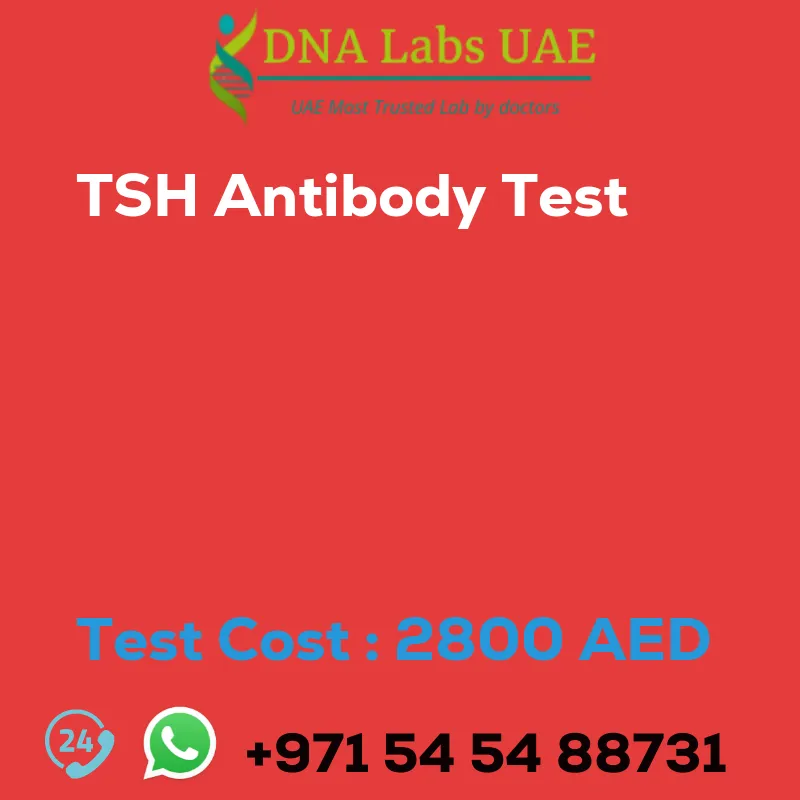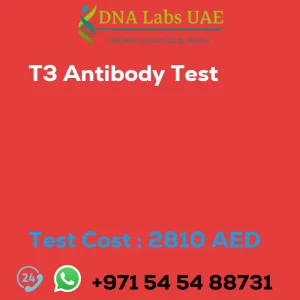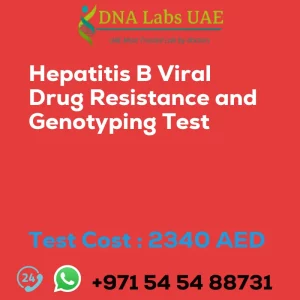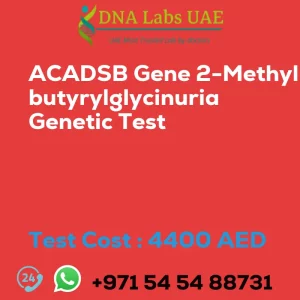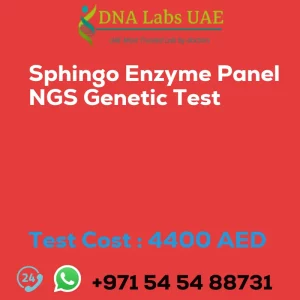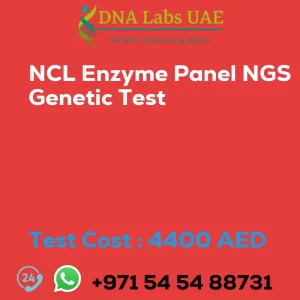TSH ANTIBODY Test
Cost: AED 2800.0
Welcome to DNA Labs UAE, your trusted genetic lab for all your testing needs. Today, we will be discussing the TSH ANTIBODY Test and its importance in diagnosing and monitoring Graves’ disease.
Test Details
The TSH antibody test, also known as thyroid-stimulating immunoglobulin (TSI) test, is a blood test used to measure the level of antibodies that target the thyroid-stimulating hormone (TSH) receptor. These antibodies can cause the thyroid gland to produce excess thyroid hormones, leading to a condition called Graves’ disease.
The TSH antibody test is primarily used to diagnose and monitor Graves’ disease, an autoimmune disorder that affects the thyroid gland. It is often ordered when a person shows symptoms of hyperthyroidism, such as weight loss, rapid heartbeat, tremors, and anxiety. The test can help differentiate Graves’ disease from other causes of hyperthyroidism.
During the test, a blood sample is taken from a vein in the arm. The sample is then sent to our laboratory for analysis. The results are typically reported as a numerical value, indicating the level of TSH antibodies in the blood. High levels of TSH antibodies suggest the presence of Graves’ disease.
It is important to note that the TSH antibody test is just one component of the diagnostic process for Graves’ disease. Other tests, such as thyroid function tests and imaging studies, may also be necessary to confirm the diagnosis and assess the severity of the condition.
Test Cost and Sample Condition
The cost of the TSH ANTIBODY Test is AED 2800.0. To perform the test, we require a minimum of 2 mL (1 mL min.) serum from 1 SST. The sample should be shipped refrigerated or frozen to ensure its integrity.
Additionally, it is mandatory to fill out the Test Send Out Consent Form before sending the sample. This form ensures that you understand the purpose of the test and consent to its performance.
Report Delivery
The sample should be sent to us by the 7th of the month. After receiving the sample, the report will be delivered within 2-3 weeks. We understand the importance of timely results and strive to provide them to you as soon as possible.
Method and Test Type
The TSH antibody test is performed using the Radioimmunoassay method. This method allows for accurate measurement of TSH antibodies in the blood, aiding in the diagnosis of Graves’ disease.
The test falls under the category of Disorders of Thyroid gland. It is commonly ordered by Endocrinologists and Physicians who specialize in the treatment of thyroid-related conditions.
Treatment Options
If the TSH antibody test confirms the presence of Graves’ disease, various treatment options are available. The choice of treatment depends on the individual case and may include medication, radioactive iodine therapy, or surgery.
Our team of experts will guide you through the treatment process, ensuring the best possible outcome for your health.
At DNA Labs UAE, we prioritize accuracy, reliability, and patient satisfaction. Trust us with your genetic testing needs, and we will provide you with the highest quality service.
| Test Name | TSH ANTIBODY Test |
|---|---|
| Components | |
| Price | 2800.0 AED |
| Sample Condition | 2 mL (1 mL min.) serum from 1 SST. Ship refrigerated or frozen. Duly filled Test Send Out Consent Formis mandatory. |
| Report Delivery | Sample by 7th of the month; Report after 2??3 weeks |
| Method | Radioimmunoassay |
| Test type | Disorders of Thyroid gland |
| Doctor | Endocrinologist, Physician |
| Test Department: | OS |
| Pre Test Information | Duly filled Test Send Out Consent Formis mandatory. |
| Test Details |
The TSH antibody test, also known as thyroid-stimulating immunoglobulin (TSI) test, is a blood test used to measure the level of antibodies that target the thyroid-stimulating hormone (TSH) receptor. These antibodies can cause the thyroid gland to produce excess thyroid hormones, leading to a condition called Graves’ disease. The TSH antibody test is primarily used to diagnose and monitor Graves’ disease, an autoimmune disorder that affects the thyroid gland. It is often ordered when a person shows symptoms of hyperthyroidism, such as weight loss, rapid heartbeat, tremors, and anxiety. The test can help differentiate Graves’ disease from other causes of hyperthyroidism. During the test, a blood sample is taken from a vein in the arm. The sample is then sent to a laboratory for analysis. The results are typically reported as a numerical value, indicating the level of TSH antibodies in the blood. High levels of TSH antibodies suggest the presence of Graves’ disease. It is important to note that the TSH antibody test is just one component of the diagnostic process for Graves’ disease. Other tests, such as thyroid function tests and imaging studies, may also be necessary to confirm the diagnosis and assess the severity of the condition. Treatment options for Graves’ disease may include medication, radioactive iodine therapy, or surgery, depending on the individual case. |

